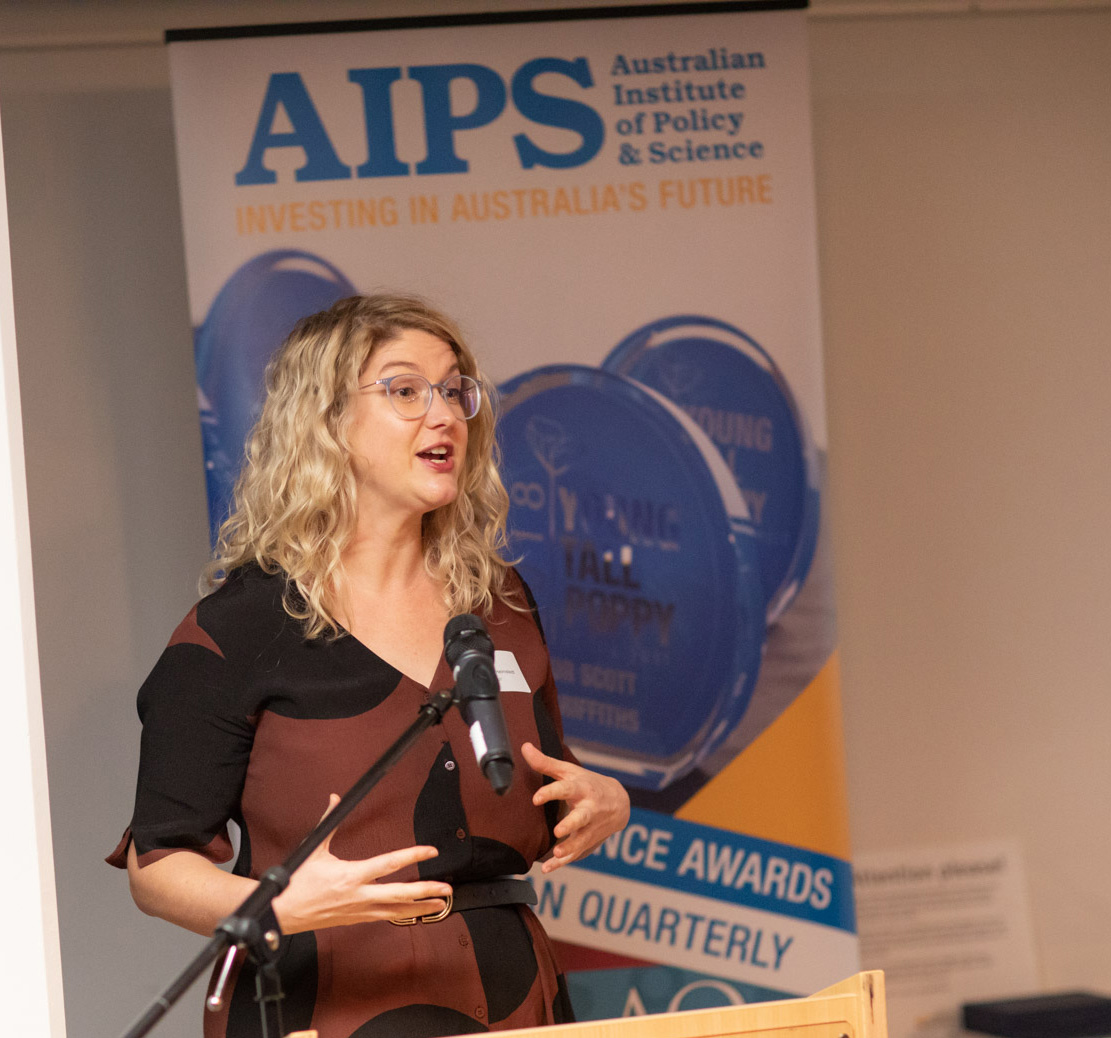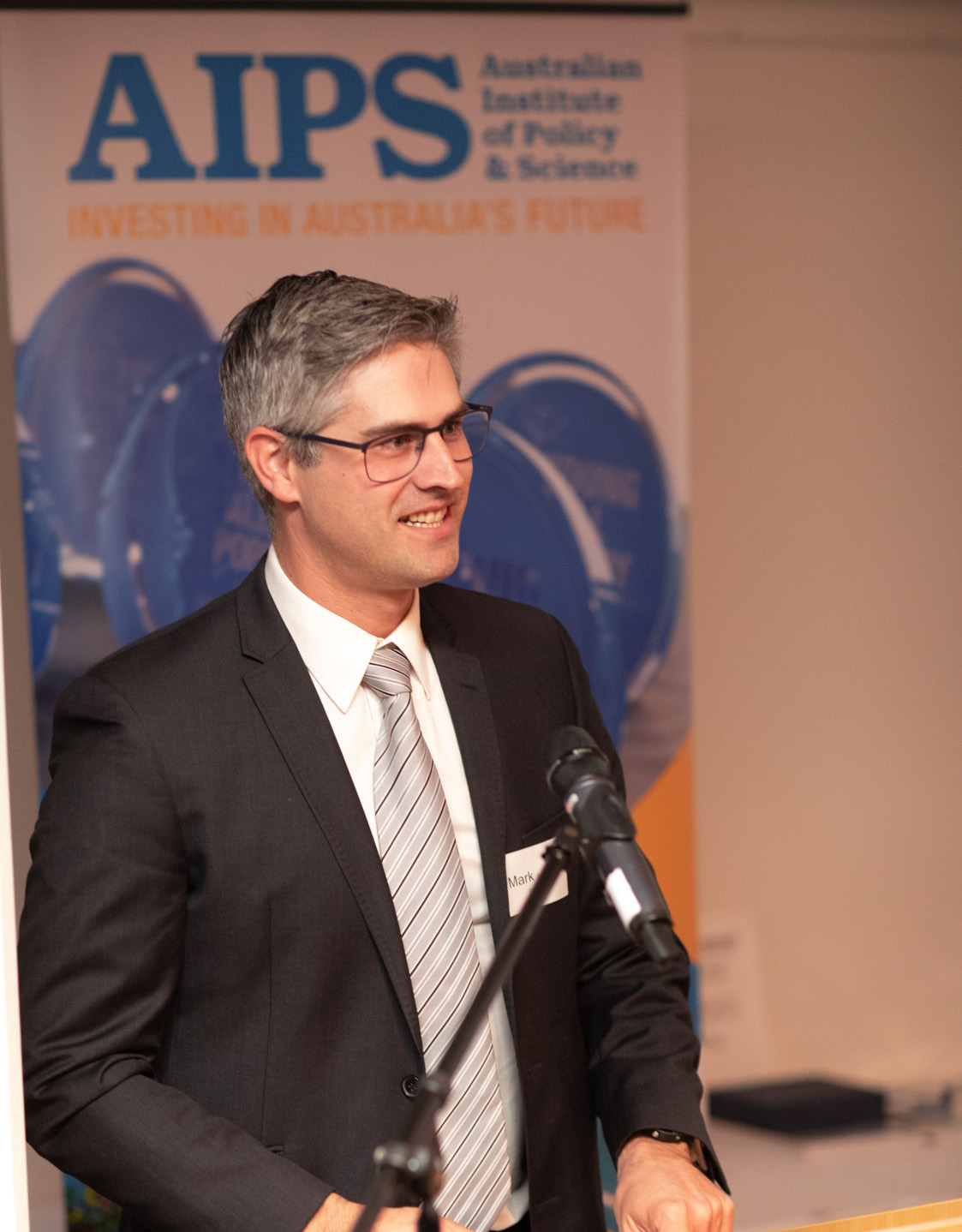QUT is celebrating two QUT scientists who received a Queensland Young Tall Poppy Science Award last night at the annual event where 12 of Queensland’s top young scientists were recognised for their contribution to advanced research.
QUT’s 2022 awardees are:
Dr Kate Helmstedt
Dr Kate Helmstedt develops novel quantitative techniques to inform how we manage species and ecosystems. Her research challenges the way we spend conservation resources by developing new mathematical theory to better understand the Earth’s threatened ecosystems.
Dr Helmstedt, from QUT School of Mathematical Sciences, says species are under threat around the world, impacted by the growth and demands of human populations and the ongoing expansion of our cities.
“We rely on our environment for a lot that’s irreplaceable – food, jobs, fun, water, and protection from the sun, storms, and heat,” she said.
“We need to invest in protecting the environment from human pressure, but it is hard to achieve as it can be very expensive, budgets are limited, and ecological systems can be complex.
“I use mathematics to understand threatened ecosystems and the way we interact with them to design better strategies for protecting them.
“I build computer models of systems like the Great Barrier Reef and Antarctica. I use those models to identify where we need better data from drones or satellites to help us understand the human impact on the environment and how to spend limited conservation funds to protect them.”

Dr Helmstedt has published 26 peer-reviewed papers on research with high impact, in both scientific novelty and public policy relevance.
She has been instrumental in securing, designing, and successfully delivering upon large research programs in addition to being awarded an ARC DECRA Fellowship. She helped develop a program of research to build climate resilience in the Great Barrier Reef which has led to strategies and networks that will underpin decisions on reef restoration over the next critical decade, and she co-leads one of three research programs in the $36 million Securing Antarctica’s Environmental Future.
Dr Mark Adams
Lung cancer remains the deadliest cancer worldwide and has a poor Australian five-year survival rate of just 19 per cent.
Dr Mark Adams, from QUT School of Biomedical Sciences, says that despite a range of therapeutic options, current strategies fail to adequately treat all people living with lung cancer. Tumour resistance to therapy remains the main reason why lung cancer is so deadly.
“To address this, we are developing personalised approaches to improve how tumours respond to therapy,” Dr Adams, who is based at the Translational Research Institute, said.
“Ours is a dual-pronged approach by, firstly, using a unique diagnostic tool developed in my lab to identify resistant lung tumours before a patient undergoes treatment to prevent unnecessary toxic therapies.
“Secondly, I am developing new drug-like therapeutics to switch off molecules that are overactive in therapy-resistant disease.

“My work has identified two unique molecular targets which we can exploit to block uncontrolled cancer growth and reverse therapy-resistance in laboratory models of lung cancer.
“My vision for these discoveries is to improve health outcomes and quality of life for all people living with lung cancer.”
Dr Adams has helped attract $6.4m in competitive funding and he has led 77 per cent of these successful applications, including from the NHMRC and Cancer Australia. He has filed biomarker patents as the lead inventor and his translational research excellence has been recognised with national invited conference presentations and institutional prizes.







